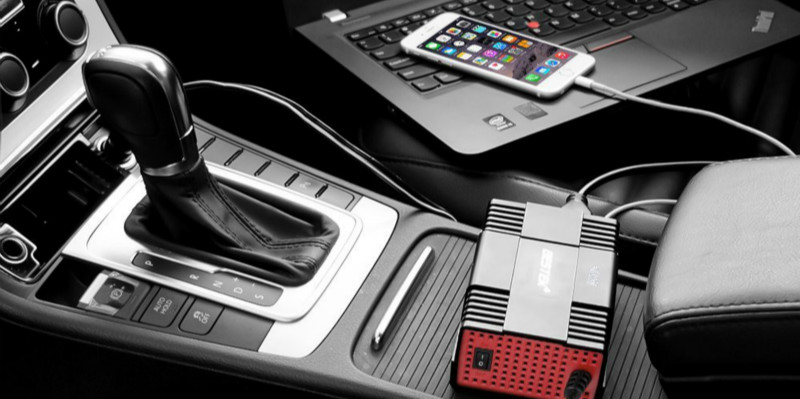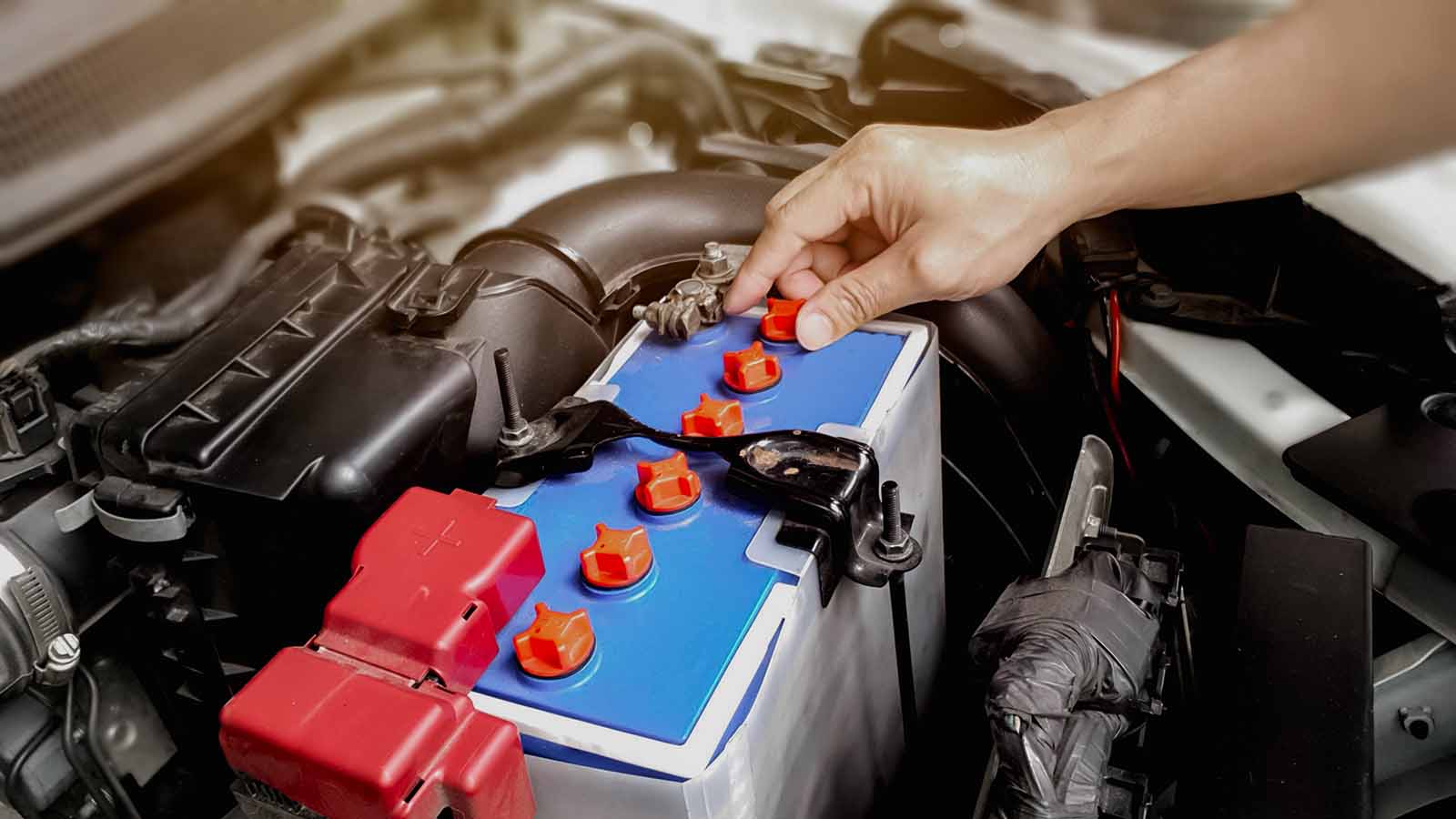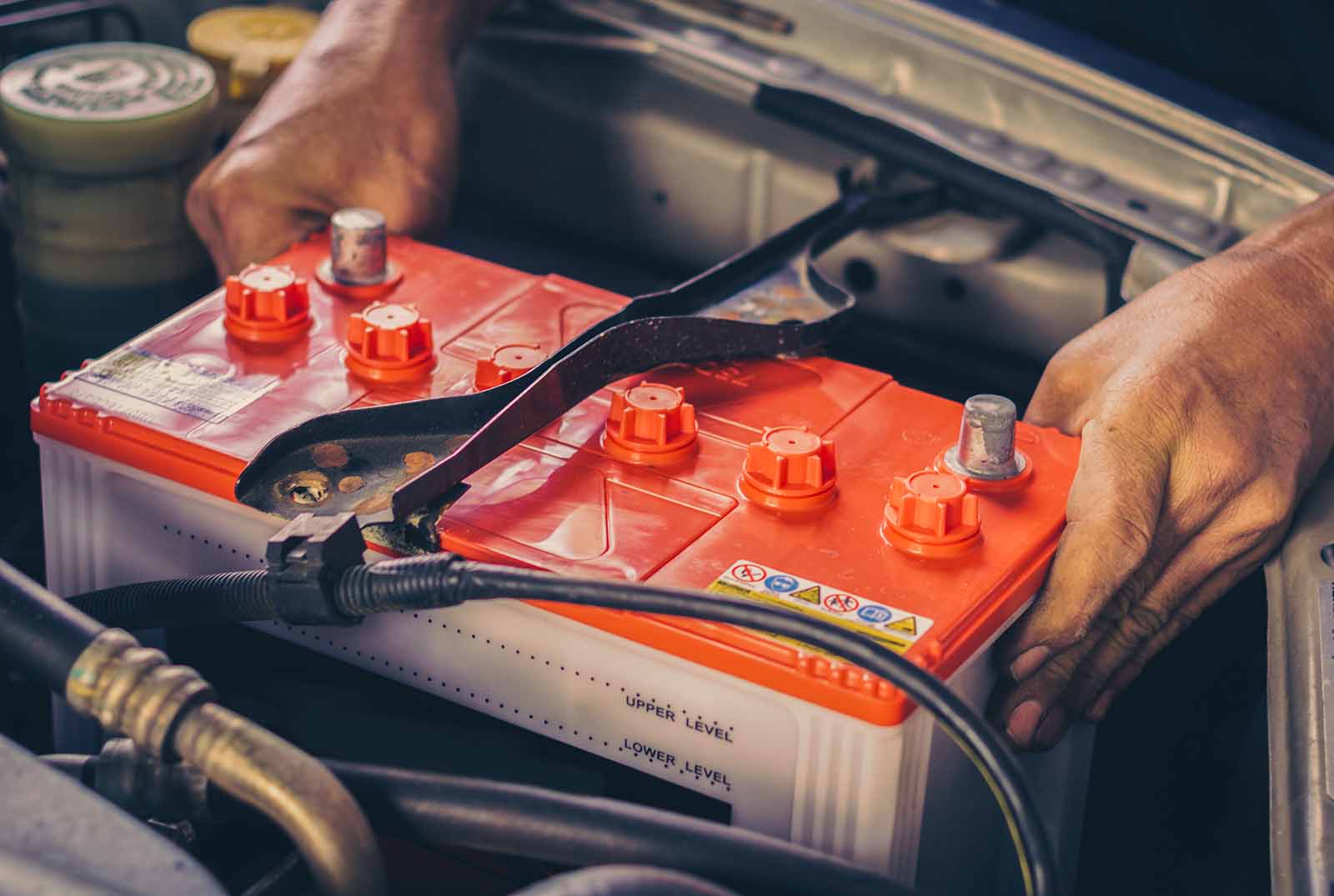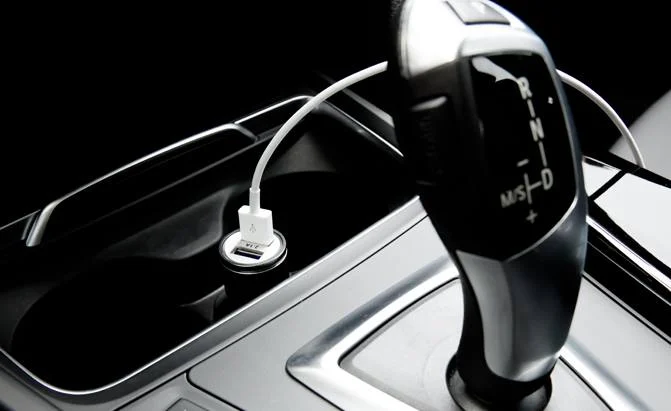The inverter is the device that converts power from battery-powered electronics to the voltage used by your car (120 volts). The greater wattage an inverter can handle, the more devices you can use at one time. While most extension cords are too short of plugging all of your 120-volt devices into an inverter, other options include using multiple outlets or installing longer extension cords. Let’s learn how big of an inverter can my car handle.
While you may not know the exact power of your car’s electrical system, it’s essential to understand that a single inverter can only connect to one car battery. If you have two 240v sockets on your car, you’ll need an inverter rated at 500 watts. Inverters come in different sizes and price points, so it’s essential to purchase the correct size for your needs.
How to Determine the Inverter Size That Your Car Can Handle?

Inverter sizing does base on the load that the inverter must supply. This load can find on the inverters continuous power rating (measured in Watts) multiplied by 1.3 to 1.5. Let’s say that I want a 1000 Watt continuous power inverter. The minimum inverter size that I would need would be 1,300 Watts. I could use a smaller inverter, but it would get hot and shut down.
If you are using a microwave, the inverter must be larger than the load. Also, if you are using a laptop computer to charge its battery, then the inverter must be larger than the load. The pack does base on the inverter’s continuous power rating and the maximum voltage of the battery you are charging.
The maximum voltage could reach 28 volts by using Using a 24-volt battery. If you use a 48 Volt battery, the maximum voltage may be 52 volts.
Here’s an example: If the inverter has a continuous power rating of 2,000 Watts, and the max voltage of the battery is 24 Volts, then multiply the 2,000 Watts by 1.5 to get a constant load of 3,000 Watts. Then multiply the 3,000 Watts by 1.5 to get a continuous load of 4,500 Watts.
What’s The Biggest Inverter My Car Can Handle?

To determine the largest inverter your car can handle, you will first need to assess your current car’s voltage and current demands. Today, most vehicles can operate a 110v inverter, although the more significant the inverter, the less the power.
If you need to run your ac on a 110v inverter, I would advise using the limited function of your ac rather than the full function. This way, you won’t blow a fuse or blow a circuit. Make sure you have a functional alternator, as it may have turned off. Keep this in mind while considering car capacity if you have several passengers in your vehicle.
Is Bigger Inverter Better?

The question is not about the size of the inverter. It is about the quality of the product. Because both have the same efficiency, a 1000-watt inverter will perform the job just as well as a 2000-watt inverter. You can check the efficiency of the inverter you are interested in.
For example, a 700-watt inverter can produce 600 watts of true AC power. To measure the efficiency of a particular inverter, we use the Power Factor (PF) or Power Quality (PQ), and it gives in percent. For example, a 700-watt inverter with a PF of 0.7 would produce 600 watts at a full rated load. If you have any more questions, let us know in the comments, and we will be happy to answer them.
What Factors Affect The Size Of An Inverter Required To Power A Car?

Many factors affect the size of an inverter required to power a car.
- An inverter’s size is measured in kVA (kilovolt-ampere).
- The higher the kVA, the more power the inverter can supply.
- Power: The power required depends on the car’s power and the gadgets in the car.
- Load: The total load determines the size of the car battery. A smaller car battery cannot handle a large load.
- Size: The size of the car battery depends on the size of the car. Larger cars need larger car batteries.
- Weight: Car batteries are heavy. The inverter must be powerful enough to lift the weight of the car battery.
- The inverter manufacturer and model will determine the peak power, duty cycle, and in some cases, the average power of a given inverter.
Frequently Asked Questions
Will The Inverter Damage My Car?
Many people are worried about using inverters with their cars because they believe the electricity may damage the engine. There is, however, no truth to this myth.
For an inverter to damage a car’s engine, it would have to produce enough current to reach the spark plugs placed deep in the machine. As long as car owners know how much power their inverter can produce, they will not have any cause for concern.
How Big Of An Inverter Can I Run On A Car Battery?
The size of the inverter you can run on a car battery is dependent on the battery capacity and how many amps it can take. If you have an inverter capable of carrying 1 amp and your car battery has an ability of 60 amp-hours, you will be able to power your electronics for up to 3 hours.
Can A Car Battery Run A 2000 Watt Inverter?
A car battery cannot run a 2000-watt inverter. The power demand exceeds the car battery’s capacity when you load the inverter.
Does A Power Inverter Drain A Car Battery?
It is a device used to convert DC electricity to alternating current. This device uses for many different applications, but most commonly, it’s used in cars to convert the battery power into AC power used by the car electrical system.
This device does not drain battery power but uses an alternator or generator to provide the necessary power.
Conclusion
Inverters use to convert DC power from a car battery into AC power. It does so that household appliances can use in a car. The devices plug into the inverter, which converts the power from the battery into AC power that the household appliances can use.
The amount of power generated by the inverter will depend on the size of the inverter. It is a quantity of energy that can convert from DC to AC. It is also affected by the size of the inverter. Some cars can handle larger inverters than others.

James Carter is an automotive blogger, reviewer, and technology enthusiast based in the USA. With a deep passion for cars and years of experience following the automotive industry, James focuses on delivering honest, well-researched content that helps readers make smarter decisions.

